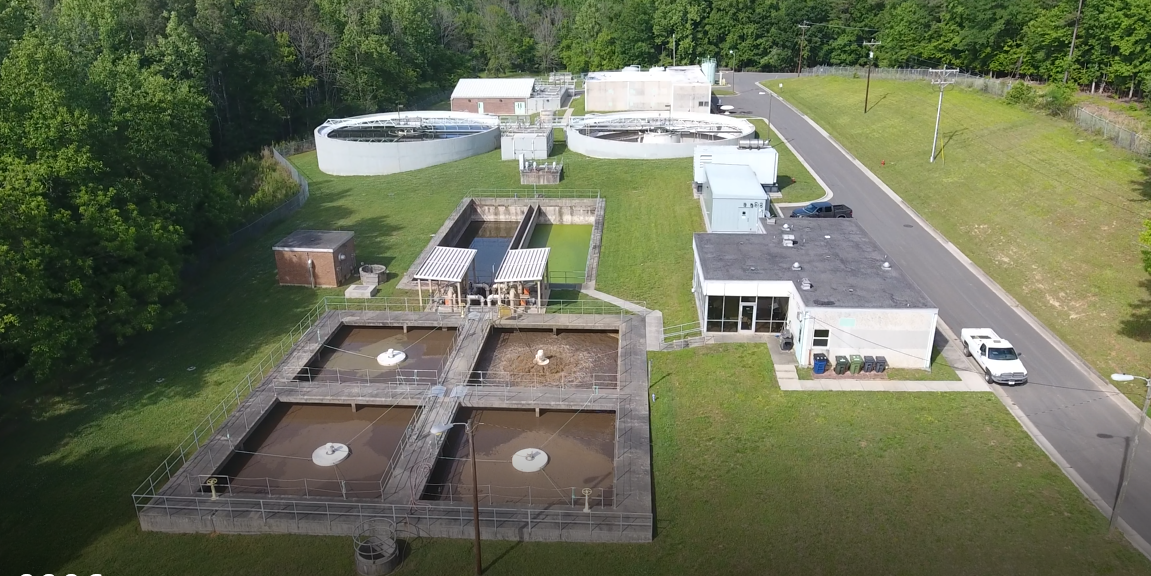It came from a press release issued on April 4 from the Department of Homeland Security: all approved grants and applications for FEMA’s Building Resilient Infrastructure and Communities program, or BRIC, were cancelled. President Donald Trump’s administration called BRIC “wasteful,” “ineffective,” and “more concerned with political agendas than helping Americans affected by natural disasters.” The program, which was started in 2018 after congressional approval, funded projects meant to mitigate potential hazards and prevent further economic investment in cleanups.
BRIC’s cancellation means more than 200 projects in North Carolina are now left without a key funding source – including a major one in Hillsborough.
The Town of Hillsborough is now scrambling for ways to move forward with relocating and replacing its River Pump Station, a critical water and sewer infrastructure effort that may be far too expensive for the local government to shoulder before it needs to begin construction. Mayor Mark Bell spoke with 97.9 The Hill, saying the replacement project has been in the works for several years to move the 1970s-era wastewater pump station out of the Eno River flood plain and to a safer area. After having their grant application approved in 2021, Hillsborough was not far from being able to put the project into motion.
“We had done a lot of planning, the design work was done, and we were about to put this out to RFP in June of this year,” Bell said, “and the funding was rescinded. What that means, practically, is that Hillsborough will have a $6 million hit to our water and sewer capital improvement program – which is a huge hit for us.”
Not only does relocating the pump station improve its safety and resiliency, but Bell said it is also to help the town expand its water and sewer capacity. With the demand for development around the town, a bigger and more efficient system is not just helpful but legally necessary.
“The growth pressure in Hillsborough is tremendous and we are very nearing capacity for water and sewer,” said the mayor. “The way the law works in North Carolina is once you reach 80% capacity, you have to start planning for how to expand that. And by the time you reach 90% of your capacity, you have to be underway – shovels in the ground – building this infrastructure.
“We’re rapidly approaching that 80% [threshold],” Bell added, “and guess what, our funding just got yanked out from under us.”
Hillsborough’s Elizabeth Brady Road wastewater treatment plant was opened in 2014 and represented a significant upgrade. But a combination of the town’s growth and its pump stations’ ages have the town facing other significant water and sewer capacity constraints. The River Pump Station, which had been approved for a BRIC grant, sits on the other side of the Eno River from the treatment plant. (Photo via the Town of Hillsborough.)
The cancelled program also means losing a $1 million BRIC grant to help maintain emergency connections with OWASA and Jordan Lake, and to provide emergency water from Hillsborough’s reservoirs – which Bell said his town has done twice in recent years. Further complications for the town include the recently posted proposal request for redesigning and replacing Hillsborough’s Elizabeth Brady pump station about half a mile away.
Considering the $6 million price tag for the River Pump Station project would be close to half of the town’s water and sewer fund, Bell said the federal government’s decision – and its timing – will make for a difficult few months before the new fiscal year.
“That is going to make us rethink our budget, it’s going to make us rethink timelines, it’s going to impact future development opportunities for residential and commercial growth in Hillsborough, and other communities around the state too,” said the mayor. “It’s a little bit of a financial disaster.”
While the BRIC program might be gone, FEMA may still provide funding for similar hazard mitigation projects in the future. But Bell said Hillsborough’s leaders are already turning to North Carolina’s congressional officials and its state government representatives to convey the importance of the pump station project and the town’s dilemma. While they will take a “no stone left unturned” approach, the mayor said it feels unlikely they will go back to the federal government because of the turmoil of the current administration.
“There may be other opportunities,” Bell said, “they may redirect some of that funding to other FEMA programs and we might be able to apply for those. Some of these BRIC grants will continue, but at the discretion of the FEMA director and [with] other conditions…and we have no confidence that we can rely on that kind of assurance.”
More details on Hillsborough’s wastewater treatment plants, water and sewer efforts can be found on the town government’s website.
Featured photo by the Chapel Hill Media Group.
Chapelboro.com does not charge subscription fees, and you can directly support our efforts in local journalism here. Want more of what you see on Chapelboro? Let us bring free local news and community information to you by signing up for our newsletter.
‘Financial Disaster’: Cancelled FEMA Program Leaves Hillsborough Pump Station Project $6 Million Short Chapelboro.com.
Read More Details
Finally We wish PressBee provided you with enough information of ( ‘Financial Disaster’: Cancelled FEMA Program Leaves Hillsborough Pump Station Project $6 Million Short )
Also on site :
- Miss Manners: His driving was terrifying. Was I wrong to ask him to slow down?
- The Implications of GLP-1s on Women’s Healthcare
- China, Kenya upgrade ties amid 'turbulent international situation

